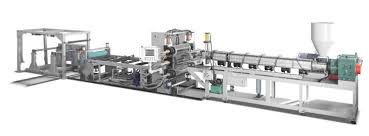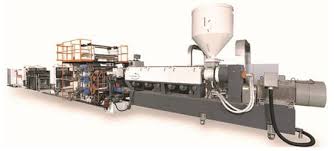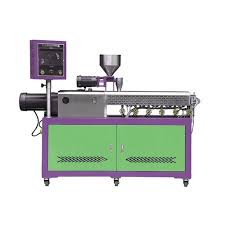In the plastics industry, the extruder is a vital component of any injection moulding machine, responsible for preparing and delivering high-quality molten plastic into the mold. The process of manufacturing an extruder for injection moulding machines is a highly specialized task that demands precision, material expertise, and a deep understanding of thermoplastics.
For manufacturers aiming for consistent quality and long equipment life, investing in a well-designed and well-manufactured extruder is non-negotiable.
What Is an Extruder in Injection Moulding?
The extruder in an injection moulding machine typically consists of a screw barrel assembly—including the screw, barrel, heating system, and motor drive. Its role is to:
Convey plastic pellets through the barrel
Heat and melt the plastic to a specific viscosity
Homogenize the melt to ensure consistency
Inject the molten plastic into a mold cavity with precise pressure and speed
Key Steps in Manufacturing an Extruder for Injection Moulding
Design Engineering
Each extruder is designed based on the type of plastic (e.g., PP, ABS, PET, PC) and the intended molding application.
Parameters such as L/D ratio (length-to-diameter), screw geometry, and heating zones are optimized.
Material Selection
High-grade nitrided or bimetallic steel is used for the barrel and screw to withstand abrasion, corrosion, and high temperature.
Components must meet ISO and DIN machining standards to ensure interchangeability and tolerance.
Precision Machining
CNC machining is used to manufacture the screw and barrel with tolerances as tight as ±0.01 mm.
Threading, polishing, and straightening are applied to prevent screw wobble and ensure smooth material flow.
Heat Treatment & Surface Hardening
The barrel and screw undergo heat treatment to improve hardness and wear resistance.
Bimetallic coatings or nitriding processes may be applied for long service life.
Assembly & Testing
The extruder is assembled with heating bands, thermocouples, and a motorized drive system.
Dynamic balancing and performance testing are conducted to ensure uniform melting and low vibration.
Applications and Industries
Extruders for injection moulding machines are used in:
Automotive components
Consumer electronics
Packaging materials
Medical devices
Household and industrial goods
Final Thoughts
High-quality manufacturing for extruder components is essential for consistent, efficient, and cost-effective injection moulding. A precisely engineered extruder not only improves melt quality and cycle time but also reduces maintenance downtime and material waste.
If you're sourcing an injection moulding machine or replacing its extruder assembly, prioritize manufacturers with proven expertise in screw-barrel engineering, material treatment, and performance testing. In extrusion, precision means profit.






